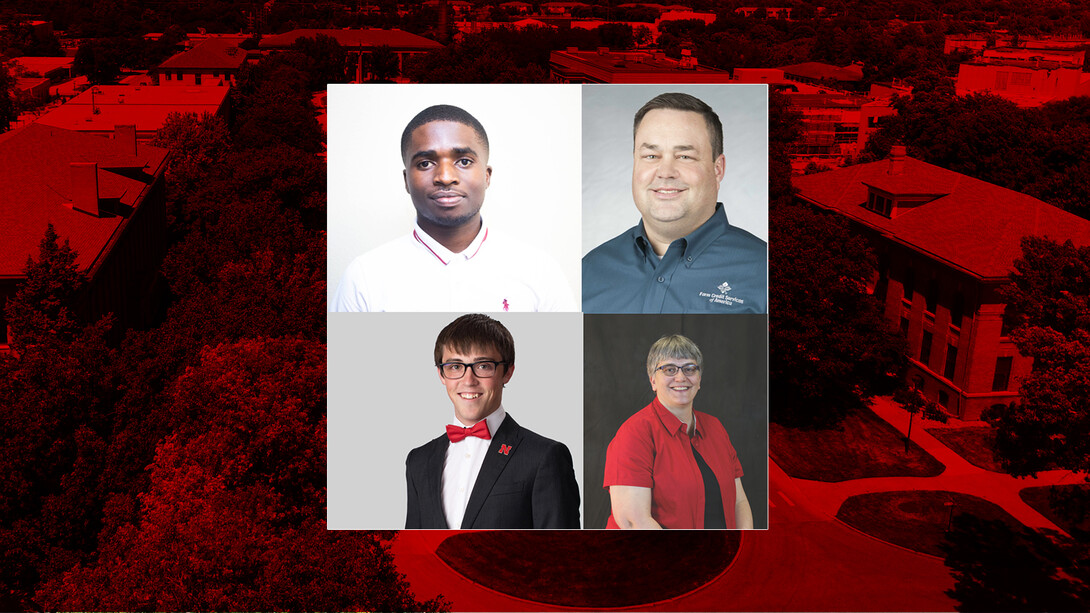
Lincoln, Neb. —The College of Agricultural Sciences and Natural Resources at the University of Nebraska-Lincoln is launching a brand-new first-generation student mentorship opportunity this fall to connect CASNR students and alumni.
The college experience for first-generation students is unique. The goal of the mentorship program is to help first-gen students navigate their college path, create their own experience, and learn about the world beyond East Campus. CASNR is seeking interested first-generation undergraduate students, as well as CASNR alumni to participate.
“Our goal in providing this experience is to build a campus environment where first-gens feel supported and belong, and our alumni have the opportunity to connect with our world-class students,” said Meg Kester, director of strategic initiatives and alumni engagement within CASNR.
Lisa Lunz, an ‘83 CASNR graduate in animal science served as a mentor in the pilot program this spring. Lunz is a busy farmer, wife and mother, who balances local and state agricultural leadership positions while residing near Wakefield, Neb., on the family operation.
“I look back on my experience, and my first week and first semester I was ready to quit. I didn’t have a car, and didn’t know what was available to me, and Dr. Ted Doane got me through that first semester,” Lunz said.
“That’s part of the reason I did the mentoring, because sometimes you just need someone to listen– I mean really listen.”
Lunz also happens to be a first-generation student, just like her mentee, Wyatt Hubbard, a junior agricultural education teaching and leadership double major from Elm Creek, Neb.
Hubbard says the program has filled a void on East Campus, where city campus had an established first-gen program, which wasn’t as easily accessible between classes and his other involvements on East Campus.
“As soon as I got the email, I instantly knew that I needed to go do that,” Hubbard said.
“I was one of the first students to join the pilot program because I’ve seen mentorship programs work so well for so many other people.”
Hubbard had been considering how to tell his parents he was planning to attend graduate school, and he talked to Lunz about how to share the news.
“Lisa challenged me to look more into why I’m going into ag education and what it really means to me, Hubbard said.
“It made me realize, I actually do want to go to grad school, and I might want to go into extension education and work on that side of ag education world.”
Lunz has a son similar in age to Hubbard, and Hubbard appreciated her insights.
“As a first-gen student, my parents don’t really know what college life is like,” Hubbard said.
Lunz says she in turn, really enjoyed learning from Hubbard and was inspired by his many involvements within diverse groups on campus.
“I probably learned more from him than he’s learned from me, just because of the place that he’s at and all of the things he is passionate about,” Lunz said. “I think it’s a great opportunity for students and mentors to connect and learn from each other’s experiences.”
Every person and every interaction matters at Nebraska, and the CASNR community is taking steps to build a stronger community than ever before – no matter a student’s background.
Benjamin Niyodusenga is a sophomore integrated sciences major in the CASNR Undergraduate Scholar Program (CUSP) program, a partnership with Rwanda.
Niyodusenga said that just breaking the mold to study agriculture was difficult, let along coming to the United States to further his education.
“Agriculture is not a popular thing to learn about in Rwanda,” Niyodusenga said.
His mentee, Tim Higgins is a ’99 CASNR graduate in agricultural economics, now serves as a credit officer with Farm Credit Services of America.
“I didn’t know what to expect when I joined. Being paired up with Tim gave me an experience to learn about agriculture,” Niyodusenga said. “I looked at different careers in agriculture, which I didn’t know before and didn’t even think about.”
Not only did Higgins help expose Niyodusenga to new careers in agriculture and cornerstones in Nebraska’s agricultural economy, he simply provided support and guidance.
“He encouraged me in different activities I’ve been doing as a student,” Niyodusenga said. "He would give me encouragement in my classes saying, I know you can do it, just push through it. It has been a good experience, not just learning about agriculture in Nebraska, but for my academic experience as well.”
Higgins is also part of the CASNR alumni board, and has been part of guiding the formation of the new program.
“I really want to help shape and grow the program following our first year,” Higgins said.
“I look at it from the outside in, to being involved with sharing my history and passion for agriculture. Agriculture made me who I am today, so this is how I give back to agriculture by mentoring and being involved.”
Higgins and Niyodusenga found a shared passion: engaging youth in agriculture no matter if that is in rural Nebraska, or across the world in Rwanda.
“Learning about Benjamin, his family and Rwanda, the experience was great,” Higgins said. “You are investing time in somebody who is going to grow agriculture on the other side of the planet. They are going to go home and give back. Your time investment today is a giveback for everything that was given to you. You are paying it forward.”
Designed to be flexible, the program allows mentees and mentors to schedules to meet their own needs. In order for students and alumni both to have a valuable experience, CASNR recognizes that each relationship will looks different for each pair.
Alumni can apply online as well as students.
Natalie Jones | IANR Media







